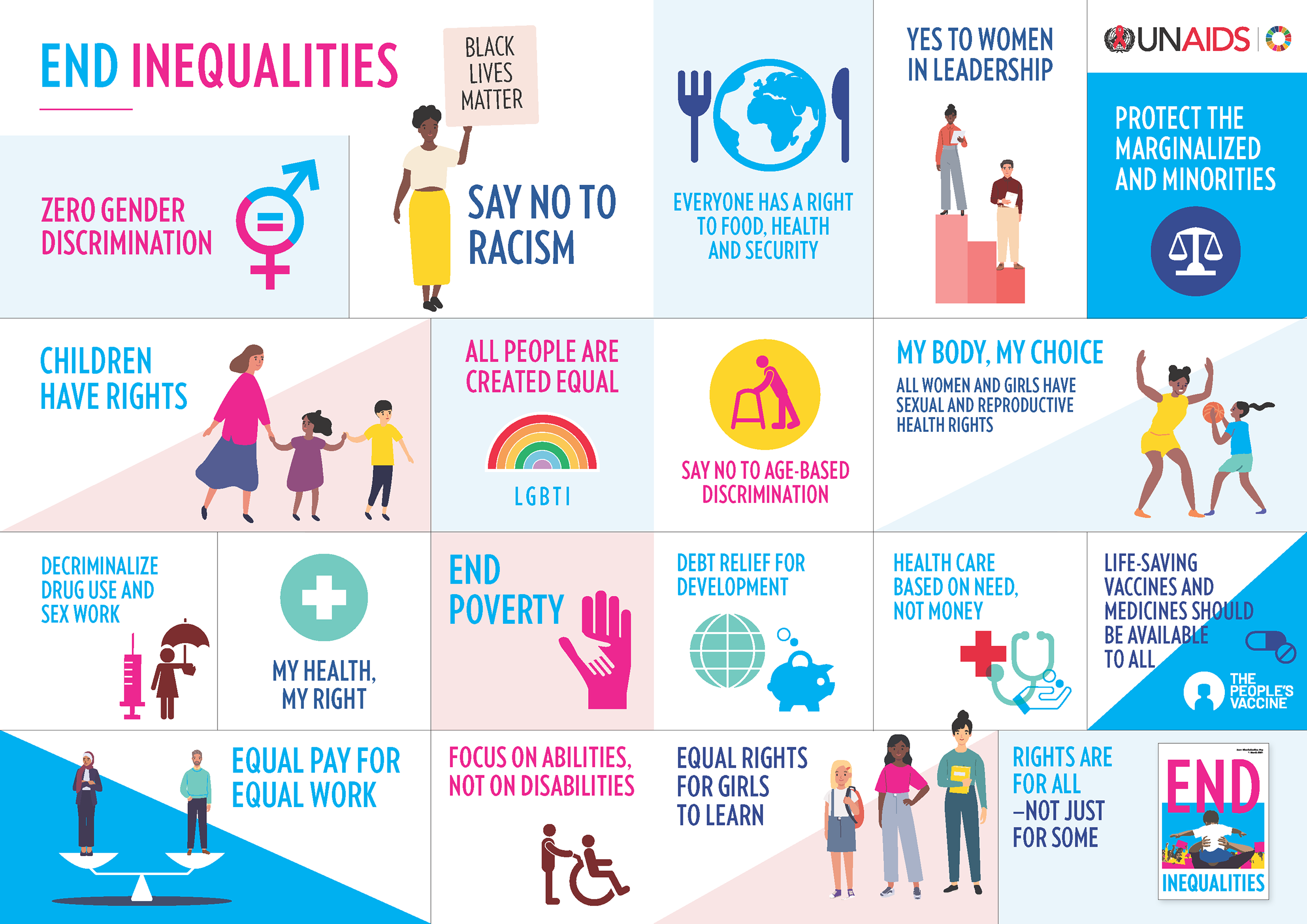Zero Discrimination Day - 1st March

On the occasion of Zero Discrimination Day, the 1st of March, a number of international organisations has issued statements and publications, among which UNAIDS and the European Commission against Racism and Intolerance (ECRI).
UNAIDS is highlighting, via a social media campaign, the urgent need to take action to end the inequalities surrounding income, sex, age, health status, occupation, disability, sexual orientation, drug abuse, gender identity, race, class, ethnicity and religion that continue to persist around the world.
According to the UNAIDS, confronting inequalities and ending discrimination is critical to ending AIDS. The world is off-track from delivering on the shared commitment to end AIDS by 2030 mainly because of structural inequalities that obstruct proven solutions in HIV prevention and treatment. Tackling inequality is also essential for advancing the human rights of persons living with HIV, making societies better prepared to beat COVID-19 and other pandemics and supporting economic recovery and stability.
On its behalf, ECRI will launch a publication (factsheet) focusing on the human rights of LGBTI persons, which summarises recommendations made as a result of ECRI’s monitoring visits to the Council of Europe’s 47 member states since 2013 when ECRI first included this issue into its country monitoring. The factsheet looks at the legal framework, data collection, research and policy framework, prevention, protection, responsibilities of public and other authorities and institutions, investigation, prosecution and procedural law measures, as well as equality bodies.
In 2014 UNAIDS Executive Director Michel Sidibé launched the Zero Discrimination Day. It is celebrated globally every year so that everyone lives life with dignity regardless of any physical, cultural and other differences.

